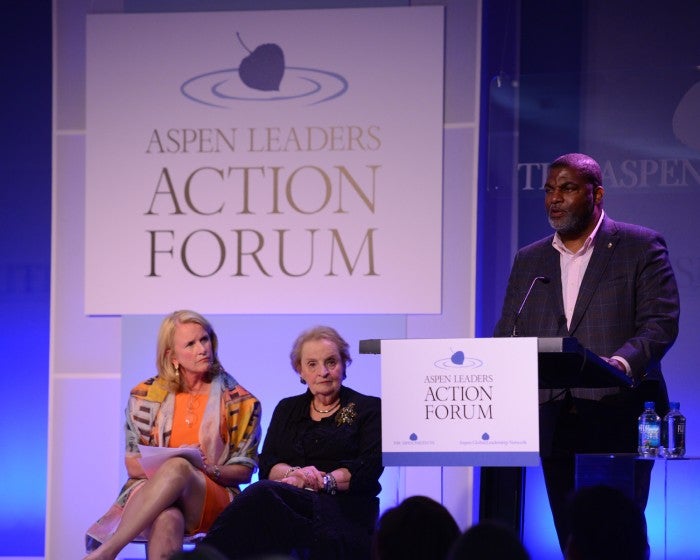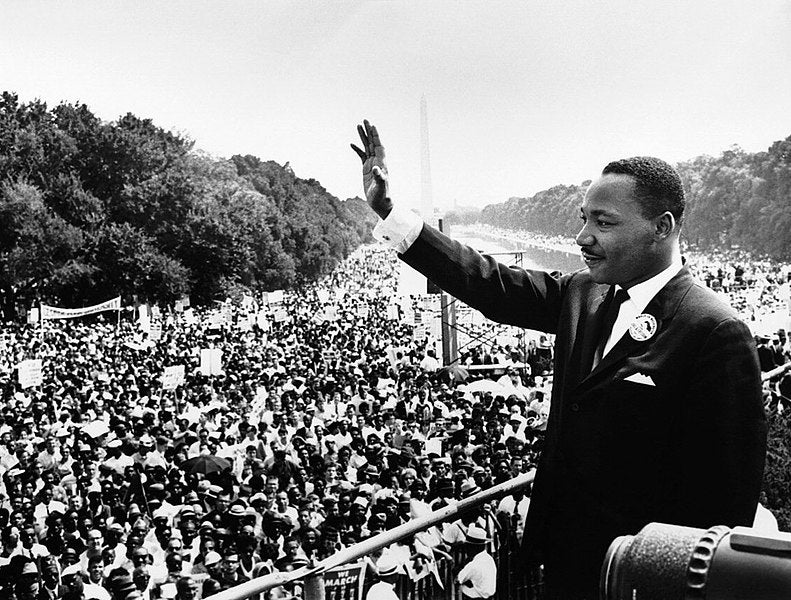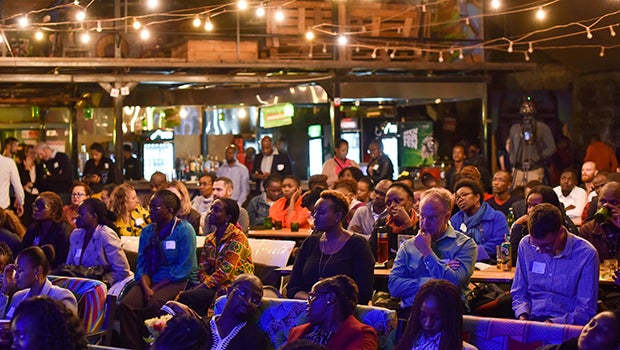William Winter is a former governor of Mississippi. He served on President Clinton’s Advisory Committee on Race.
Bill Bynum and HOPE Credit Union win the John P. McNulty Prize.
Nearly 20 years ago, several of us in the Mid-South decided that in order to tackle the problems of poverty in the Mississippi Delta, we needed something entirely new.
Government solutions alone were not working, subject as they are to the vagaries of political whim, and the turnover inherent in elective democracy. Unemployment, bad health outcomes, and low educational achievement had proved persistent.
Several folks with vision believed we needed the characteristics found in successful, private sector businesses: entrepreneurship, technical skill, and the ability to adapt quickly.
When I learned this week that the organization we founded – now called Hope Credit Union (HOPE)– and its CEO Bill Bynum (pictured below) had won the John P. McNulty Prize for leadership and entrepreneurial innovation, I felt an enormous sense of pride.
At the same time as this prize comes an academic report assessing HOPE’s work that concludes: “A well-managed financial institution with a deep commitment to helping lower-income households and sufficient human and financial capital to command respect can be a particularly effective tool for regional economic development.”
I am struck both by how much HOPE is exactly what we envisioned and how it is so very different. I am also humbled by the fact that though we have achieved much with HOPE, much work remains.
In considering how to strengthen the Delta’s weak economy, the initial focus was on jobs. The first project was a loan fund that created and preserved employment in small manufacturing businesses in the Delta regions of Arkansas, Louisiana, and Mississippi.
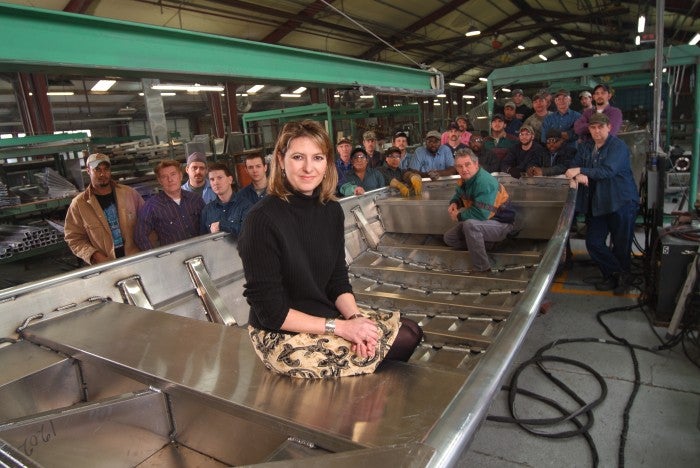 This work remains part of HOPE’s core business, such as loans to companies like Munro American Shoes in Hot Springs, Ark., and SeaArk Boats (pictured left) in Monticello, Ark.
This work remains part of HOPE’s core business, such as loans to companies like Munro American Shoes in Hot Springs, Ark., and SeaArk Boats (pictured left) in Monticello, Ark.
What none of us could have anticipated, however, was that sticking solely to manufacturing in the last two decades would have meant missing the largest growth sector for the economy in the nation, and in the Delta – namely services.
In this vein, HOPE has adapted its lending to include financing of health care providers and healthy food retailers, sectors that employ and offer substantial benefits to lower-income families and communities. The most significant thing HOPE does today that we did not envision is to provide basic financial services – checking accounts, home mortgages, and car loans – in a geographic region that reaches far beyond “the Delta.” (Our original geographic footprint was limited to 55 counties along the Mississippi River.)
Two devastating events – Hurricane Katrina and the Great Recession – exposed glaring deficits in access to credit in poor and rural communities.
Since 2008, as other financial institutions were closing their doors in underserved communities, HOPE has responded by extending a lifeline to the region’s growing number of unbanked and under-banked residents. During this period, HOPE has expanded from three to 15 branches; increased its member-owners from 9,000 to 28,000; and closed more than 7,200 consumer, mortgage, and small business loans totaling more than $260 million.
Through Bill Bynum’s extraordinary leadership, HOPE has become much more than a well-run, not-for-profit loan fund. It has spurred innovative solutions by government, philanthropies, and private enterprise.
“(HOPE) greatly magnifies its impact by partnering with banks to finance development projects, by assisting and strengthening other nonprofit organizations in its region that also seek to benefit lower-income households, and by working to inform and influence related public policy,” wrote Swarthmore University professor of economics, Dr. John Caskey, in “HOPE: The Evolution of a Community Development Organization,” (October 2013).
A primary example of this innovation is HOPE’s use of the New Markets Tax Credit (NMTC) program, a federal initiative to attract private capital into distressed communities that HOPE worked with President Bill Clinton to structure, and with Senate Majority Leader Trent Lott to secure passage.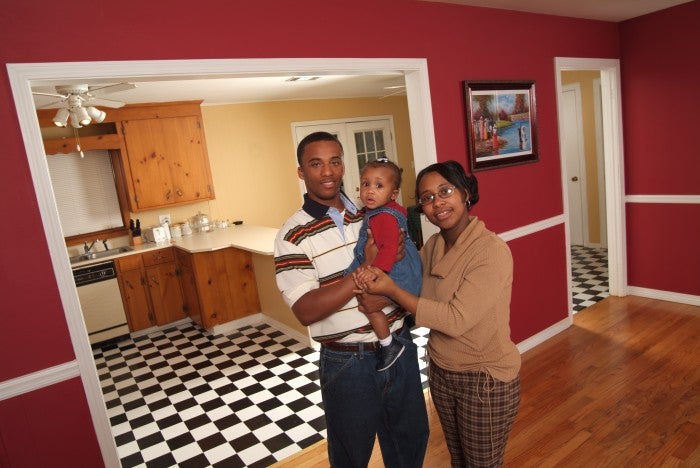
In just the last two months, HOPE closed financing on four NMTC projects, totaling $57 million. These include a charter school in the Tremé neighborhood in New Orleans; a hospital in rural Mississippi; a project to build affordable, single-family homes on the Mississippi Coast (pictured right); and a manufacturing firm in rural Arkansas.
What is sobering in the midst of all this good news around HOPE right now is that, despite its best efforts, people in the Mid-South still face greater challenges by every economic measure (unemployment, per capita income, individual wealth) than people in any other region in the country.
The McNulty Prize comes with a $100,000 monetary award, which will help HOPE continue the part of its work that will never be self-sustaining.
According to Caskey, “HOPE will make loans that it does not expect to be very profitable if it believes this will create jobs, build wealth for disadvantaged entrepreneurs, or provide needed social services in lower-income communities. Its credit union will spend time working one-on-one with low-income members to help them build good credit histories; replace unsuitable, onerous loans with responsible loans, or find down-payment assistance that can enable them to start building wealth through homeownership.”
The painful truth is that the Mid-South’s long legacy of economic injustice is rooted in a painful, racist history. Many people of courage and good conscience – from here and across our great country – have fought for decades for justice in the Mid South.
As my friend Myrlie Evers-Williams, whose husband, Medgar Evers, was killed 50 years ago fighting this fight, has told me: “HOPE provides people with access to self-determination, and economic empowerment, and dignity. That is exactly what Medgar wanted.”
In order to have a moral and sustaining civil society in the Mid-South, and, indeed, in the nation as a whole, we must ensure that people at the bottom of the socioeconomic ladder have access to opportunity. And when we identify institutions like HOPE that have a proven track record of providing that access, we have a moral obligation to support them. It is not enough to keep HOPE alive. We must find the resources to make sure it thrives.
